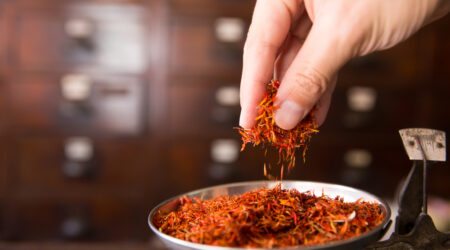4 Natural Remedies to Prevent Constipation
Constipation, a common problem, causes infrequent bowel movements. It affects one-fifth of the people living in the country. Every year, eight million people visit doctors to treat constipation. An improper diet, lifestyle problems, and other medical conditions can also induce this condition. However, there are some home remedies that can help ease bowel movement and treat constipation.
Preventing constipation
Difficulty in passing stools can lead to many problems; it can lead to anal fissures, hemorrhoids, and even rectal prolapse due to exertion and pressure on the rectum.

Certain home remedies can prevent constipation and ensure that the stools pass easily. Anyone who is at the risk of developing constipation can follow these natural remedies to prevent this condition.
Drink water
This is not an unheard method. One of the best ways to improve your digestion and soften stools is by keeping yourself hydrated. Drinking plenty of liquids, especially water, is the best way to do this. On average, you need to drink at least a liter or two of water every day.
Those prone to problems with passing stool or having digestive problems should drink approximately two to three liters of water through the day. Eight glasses of water a day is the minimum requirement for everyone. It is important to drink water and not carbonated drinks or alcohol, as these beverages can cause other health problems.
Consuming fiber
One of the main reasons for constipation is inconsistent bowel movements. The fiber in food can help in easy bowel movements. There are two types of fibers: insoluble and soluble.
Insoluble fibers are found in whole grains and vegetables. They help in easy stool movement by adding bulk to the stools. This helps it move quickly through the digestive tract.
Soluble fibers, on the other hand, absorb water. They help make the stool soft and ensure easy bowel evacuation. It is especially helpful for those who have hard stools. Soluble fibers are found in nuts, barley, oat bran, beans, lentil, and certain fruits and vegetables.
Insoluble fibers can cause problems for people with irritable bowel syndrome. Hence, these people should consume more soluble fiber. Non-fermentable fiber like Psyllium is very effective for those suffering from constipation.
Exercise
Keeping yourself fit helps improve general health. While studies are not clear about how effective exercise is for constipation, there is no doubt that keeping fit helps the body to function properly. Exercise can reduce stress, which is one of the factors causing constipation.
Consume probiotics
Probiotics are friendly bacteria that help improve digestion. Probiotics in yogurt and other supplements help digest food better and can also prevent constipation by improving bowel frequency.
These home remedies help prevent constipation and are easy to follow at home. People who are at risk of developing constipation should adopt these methods and avoid a sedentary lifestyle, stress, and unhealthy food.


